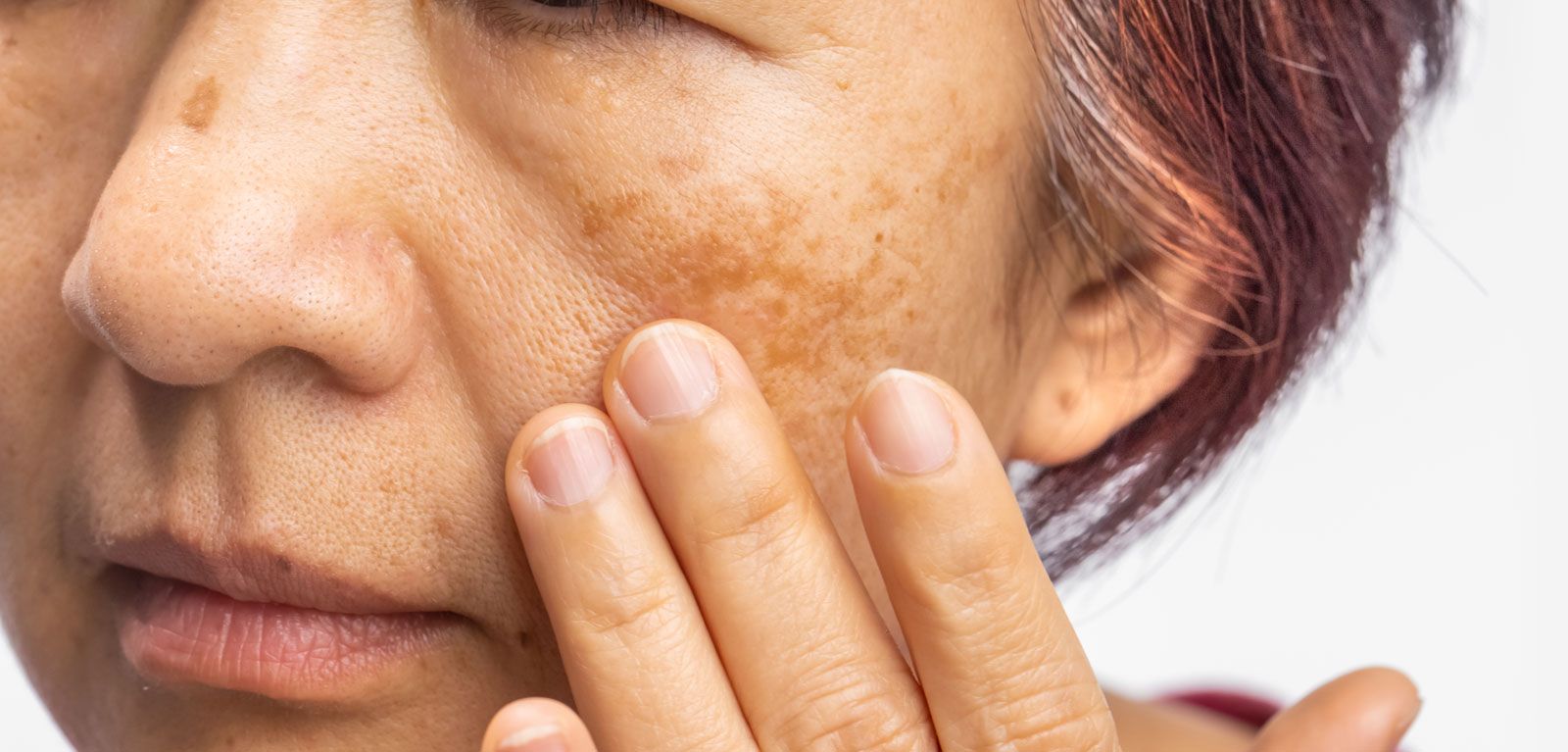Melasma.

Overview
Melasma is a common skin disorder that affects the face, often appearing as symmetrical brown or gray patches on the cheeks, forehead, nose, and upper lip.It is often triggered by hormonal changes, sun exposure, and the use of certain medications.
Cause
The cause of melasma is complex.Melasma is typically triggered by two main risk factors: hormonal changes and UV
radiation from sunlight.
Factors implicated in the development of melasma include:
- Family history
- Sun exposure — ultraviolet and visible light promote melanin production
- Hormones
- Medications and scented products — new targeted therapies for cancer and perfumed soaps, toiletries, and cosmetics may cause a phototoxic reaction to trigger melasma
Symptoms
Melasma presents as bilateral, asymptomatic, light-to-dark brown macules or patches of discoloration with irregular
borders.
The patches are darker than your usual skin color.
Distinct patterns include:
- Centrofacial — forehead, cheeks, nose, upper lip (sparing the philtrum); 50-80% of presentations
- Malar — cheeks, nose
- Mandibular — jawline, chin
Treatment options
Topical
- Cream
- Ointment
Procedures
- Chemical peel
- Laser Resurfacing

Home care / DIY care
-
Protect your skin from sun exposure to prevent worsening, and use a combined UVB+UVA sunscreen.
-
Use sunscreen year-round, since the skin is very sensitive to even small amounts of ultraviolet (UV) light.
-
Choose gentle, fragrance-free skin care products
-
Avoid waxing- Waxing may cause skin inflammation, which can worsen melasma.
FAQs
How does melasma start?
When you expose your skin to UV light, it triggers the body to produce more pigment. Sometimes, this pigment
appears unevenly, causing the blotchy patches and spots of melasma.
How long does it take to lighten melasma?
Results take time. When you follow your treatment plan, it usually takes between 3 to 12 months to see results.
Why is melasma so difficult to treat?
Because the condition is fueled primarily by sunlight and female hormones, there's no true way to cut off the
stimulus for melasma
Which laser is best for melasma?
Fractional non ablative laser therapy is the only laser treatment for melasma that has been approved by the FDA,
and it has shown promising results.
Does stress cause melasma?
It is considered to be a possible melasma trigger.Stress causes your body to increase the hormone cortisol, which
can in turn influence the amount of estrogen in the body.
How do I stop melasma from coming back?
The best way to prevent melasma from coming back or getting worse is to avoid the sun. Ultraviolet (UV) rays act on
certain cells in your skin to actually increase pigment production, which in turn makes your melasma worse
best natural results
Elara has expertise in technological advances & their suitability, and adaptability to different subjects.
We strive to treat our patients with high quality affordable & excellent Skin and laser treatments. You will get that natural touch of treatment that you will hardly get anywhere with us.
We strive to treat our patients with high quality affordable & excellent Skin and laser treatments. You will get that natural touch of treatment that you will hardly get anywhere with us.
